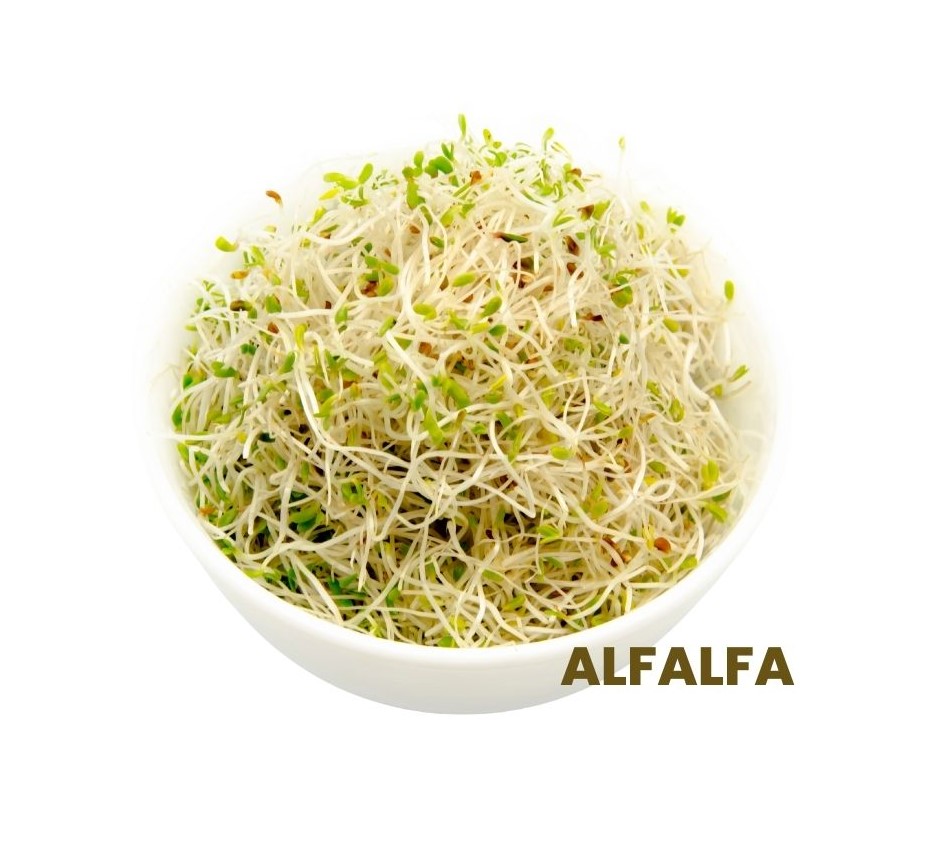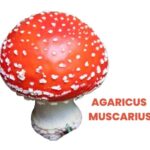Alfalfa is a homeopathic remedy derived from Medicago Sativa, commonly known as California Clover or Lucerne. The medicinal properties of Alfalfa are attributed to its influence on the sympathetic nervous system.

Table of Contents
ToggleSOURCE INFORMATION
- Kingdom: Plantae (Plant Kingdom)
- Clade: Tracheophytes (Vascular Plants)
- Class: Magnoliopsida (Dicotyledons, a class of flowering plants)
- Order: Fabales (An order of flowering plants, which includes legumes)
- Family: Fabaceae (Legume or pea family)
- Genus: Medicago (A genus of flowering plants, including alfalfa)
- Species: Sativa (Specific species name for alfalfa)
Alfalfa (Medicago sativa) is a flowering plant belonging to the legume family (Fabaceae).
It is characterized by its trifoliate leaves and clusters of small purple flowers.
Alfalfa is a valuable forage crop and is commonly grown as fodder for livestock.
It has a deep root system, allowing it to access nutrients from the soil.
In addition to its agricultural importance, Alfalfa is used in traditional medicine and is also popular as a cover crop and green manure. The plant has nitrogen-fixing properties, enhancing soil fertility.
CLINICAL APPLICATIONS
- Alfalfa is particularly beneficial in cases of malnutrition, improving appetite, digestion, and overall mental and physical vigor.
- Conditions such as neurasthenia, splanchnic blues, nervousness, insomnia, and nervous indigestion respond well to Alfalfa.
- It acts as a fat producer, correcting tissue waste, and is useful in cases of deficient lactation.
- Nursing mothers may experience an increase in both the quality and quantity of milk.
- Alfalfa’s urinary effects make it relevant in conditions like diabetes insipidus and phosphaturia, and it is claimed to alleviate vesical irritability in prostatic hypertrophy.
- The rheumatic diathesis shows a particular responsiveness to Alfalfa.
DRUG PATHOGENESIS
Alfalfa acts on the sympathetic nervous system, positively influencing nutrition.
It enhances appetite, digestion, and mental and physical vigor, leading to weight gain.
It addresses disorders characterized by malnutrition and corrects tissue waste.
Additionally, it aids in lactation, improves urinary function, and alleviates symptoms associated with prostatic hypertrophy.
CHIEF GUIDING SYMPTOMS
- Mind: Alfalfa induces a sense of mental exhilaration, leading to a feeling of well-being. It dissipates feelings of dullness, drowsiness, and gloominess, particularly worse in the evening.
- Head: Symptoms include a dull, heavy feeling in the occiput and above the eyes, with worsening towards evening. There may be pain on the left side of the head and violent headaches.
- Ears: Patients may experience a stuffed feeling in the eustachian tubes at night and patulousness in the morning.
- Stomach: Symptoms include increased thirst, impaired appetite, and bulimia. Patients may feel the need to eat frequently, often experiencing hunger in the forenoon. There is a tendency for much nibbling of food and craving for sweets.
- Abdomen: Abdominal symptoms include flatulence with distention, shifting flatulent pain along the colon several hours after meals, and frequent, loose, yellow, painful stools with burning of flatulence. Chronic appendicitis may also be present.
- Urine: Urinary symptoms include inactive kidneys, frequent urging to urinate, polyuria, and increased elimination of urea, indican, and phosphates.
- Sleep: Alfalfa induces better sleep, especially in the early morning, leading to quiet, reposeful, and refreshing sleep.
MODALITY
- Symptoms may worsen toward evening.
- The patient may experience a stuffed feeling in the eustachian tubes at night.
RELATIONSHIPS
Alfalfa shares similarities with several other homeopathic remedies, including Avena sativa, Dipodium punctatum, Gelsemium, Hydrastis, Kali phosphoricum, Phosphoric acid, and Zinc.
DOSAGE
- The best results are obtained with material doses (5-10 drops) of the tincture, taken several times daily.
- Continue use until tonic effects are observed.
CLINICAL TIPS
Alfalfa is particularly useful in conditions related to nutrition, making it a valuable remedy for individuals experiencing malnutrition symptoms, including mental and physical fatigue.
FREQUENTLY ASKED QUESTIONS
- What are the primary clinical applications of Alfalfa?
- Alfalfa is beneficial for malnutrition, improving appetite and digestion. It is indicated in conditions like neurasthenia, nervousness, insomnia, and deficient lactation.
- How does Alfalfa influence the urinary system?
- Alfalfa is indicated in conditions of polyuria, diabetes insipidus, and phosphaturia, with increased elimination of urea, indican, and phosphates.
- What mental symptoms does Alfalfa address?
- Alfalfa induces mental exhilaration, dissipating feelings of dullness and drowsiness. It creates a sense of buoyancy and well-being.
- How does Alfalfa affect sleep?
- Alfalfa induces quiet, reposeful, and refreshing sleep, contributing to overall mental and physical well-being.
- What are the characteristic symptoms related to the head in Alfalfa?
- Symptoms include a dull, heavy feeling in the occiput and above the eyes, with evening aggravation and violent headaches.
Note: This information is for educational purposes and not a substitute for professional medical advice. Consult a qualified homeopathic practitioner for individualized treatment.













Leave a Reply